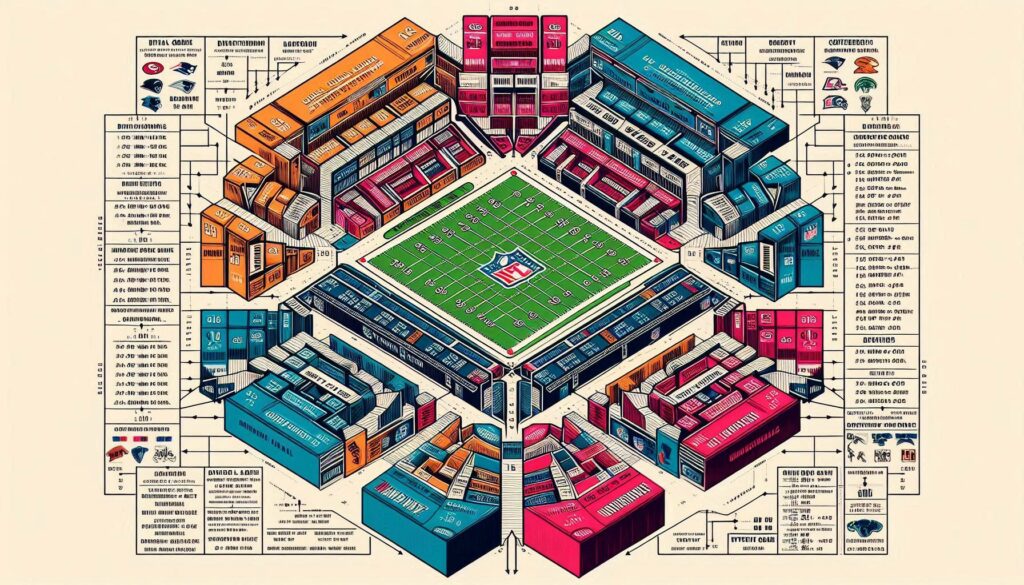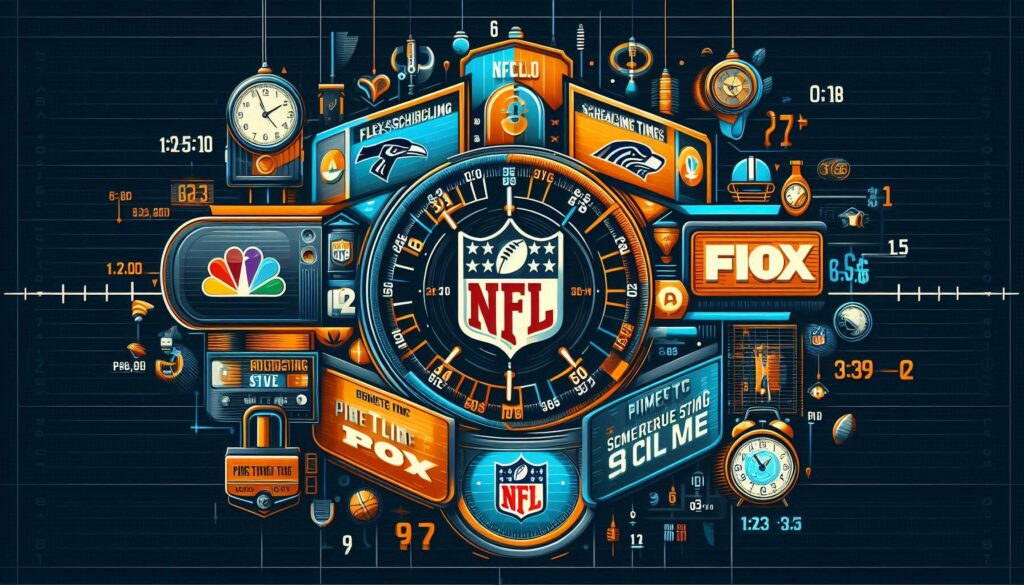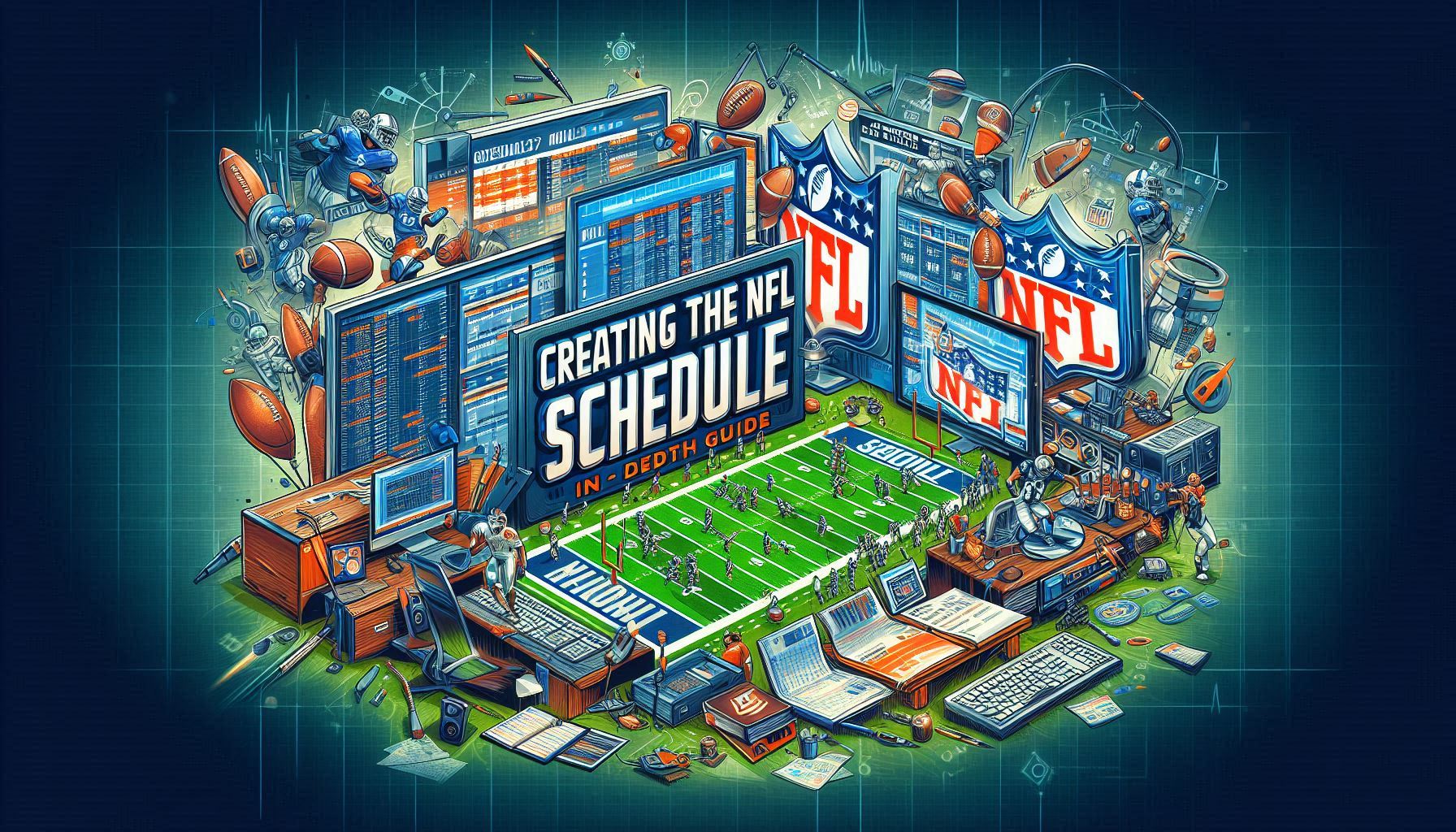Crafting the NFL schedule is a colossal task that combines cutting-edge technology with intricate logistics and strategic planning. Each year, this process involves thousands of computer simulations and several NFL executives’ expertise to produce a fair and exciting schedule for fans. This in-depth guide will explore how the NFL schedule is created, the factors involved, and the challenges the league’s scheduling team faces.
The Team behind the NFL Schedule: An Overview
The NFL scheduling process is spearheaded by a dedicated team of executives who work year-round to design the league’s 272-game schedule. These individuals include:
- Hans Schroeder – Executive Vice President of Media Distribution
- Michael North – Vice President of Broadcasting
- Howard Katz – Senior Vice President of Broadcasting
- Blake Jones – Senior Director of Broadcasting
- Charlotte Carey – Director of Broadcasting
- Onnie Bose – Vice President of Broadcasting
- Lucy Popko – Broadcasting Senior Coordinator
These experts collaborate to ensure that the schedule not only meets logistical needs but also caters to fans and broadcasting partners. Their job is to balance numerous factors, from stadium availability to broadcasting requirements, and create a schedule that maximises excitement and fairness.

The Scheduling Process: From Planning to Execution
Creating the NFL schedule is a complex process that begins each spring. Here’s a step-by-step look at how the scheduling team tackles this monumental task:
- Collecting Information:
The scheduling process kicks off in January when teams provide information about any potential scheduling conflicts. This could include events at stadiums that might clash with NFL games or logistical issues that need to be addressed. - Generating Possible Schedules:
Thousands of cloud-based computers work to generate thousands of potential schedules. These simulations take into account various factors, including team matchups, stadium availability, and broadcasting constraints. - Selecting the Optimal Schedule:
The scheduling team reviews the generated schedules, analyzing each for potential conflicts and ensuring it meets the league’s requirements. They then select the best possible schedule that balances all needs.

Anatomy of the NFL Schedule: A Detailed Breakdown
The NFL’s 32 teams are divided into two conferences: the American Football Conference (AFC) and the National Football Conference (NFC). Each conference is further divided into four divisions: East, North, South, and West, with each division containing four teams. Here’s how the schedule is structured:
- Regular Season Games: Each team plays 17 regular-season games over 18 weeks, with one bye week.
- Home and Away Games: Teams alternate between hosting nine regular-season games one season and eight the next, with one preseason game in the former or two in the latter.
Opponents and Matchups
- Divisional Games: Each team plays six games against divisional opponents, two games per team (one home, one away).
- Conference Games: Four games against teams from another division within the same conference (two home, two away).
- Inter-Conference Games: Four games against teams from a division in the other conference (two home, two away).
- Additional Game: Two games against teams from two remaining divisions in the same conference (one home, one away), based on division rankings from the previous season.
- 17th Game: An extra game against a non-conference opponent from a division not scheduled to be played, based on previous season’s division rankings.

Game Times and Broadcast Partnerships
The NFL’s broadcast schedule is meticulously planned to maximize viewership and showcase marquee matchups. Here’s how game times and broadcast partners are determined:
- Prime Time Slots: Key matchups are scheduled for Thursday, Sunday, or Monday nights, with the Super Bowl champion typically hosting the Thursday night opener.
- Saturday Games: Week 16 will feature Saturday games with NBC and FOX broadcasting at 1:00 p.m. ET and 4:30 p.m. ET, respectively. These games will be followed by Christmas Day games airing on Netflix.
- Week 17 and Week 18: Specific dates and times for these weeks are announced later in the season, with games scheduled across various time slots and networks.
Flex Scheduling
Introduced in 2006, flex scheduling allows the NFL to adjust game times to ensure high-quality matchups are featured in prime time slots. This flexibility extends to Sunday Night Football, Monday Night Football, and Thursday Night Football, with adjustments made to maximise viewer engagement.

International Series: Expanding the NFL’s Global Reach
Since 2007, the NFL has included international games in its schedule to reach global audiences. For the 2024 season, the league will play its first regular-season game in Brazil, with additional games in London and Munich. Here’s how these games are integrated into the schedule:
- International Game Planning: The scheduling team must coordinate these games early to manage travel and avoid disrupting the teams’ regular schedules.
- Travel Considerations: Teams playing international games often have a bye week before or after to minimize travel fatigue.

What Makes a Good NFL Schedule? Balancing Act of Logistics and Entertainment
Creating an ideal NFL schedule involves balancing numerous factors, including:
- Bye Weeks and Travel: Ensuring teams have fair bye weeks and minimizing cross-country travel.
- Stadium Conflicts: Avoiding scheduling conflicts with other events at stadiums.
- Operational Obstacles: Addressing logistical issues and operational challenges.
While there may not be a perfect schedule, the goal is to provide an engaging and balanced slate of games that satisfy fans and broadcasters alike.

Conclusion: The Complexity and Craftsmanship Behind the NFL Schedule
The NFL schedule is more than just a list of games; it’s a carefully crafted blueprint that requires significant planning and coordination. From handling logistical challenges to maximizing fan engagement, the scheduling team’s work is crucial to the NFL’s success. Understanding this process enhances appreciation for the game and the intricacies involved in bringing it to fans week after week.
FAQs
How many games do NFL teams play each season?
Each NFL team plays 17 regular-season games over 18 weeks, with one bye week.
Q2: When are the international games scheduled?
International games are scheduled early in the process to accommodate travel and avoid disruptions to teams’ regular schedules.
Q3: What is flex scheduling?
Flex scheduling allows the NFL to adjust game times to feature high-quality matchups in prime time slots, enhancing viewer engagement.
This comprehensive guide covers the intricate details of creating the NFL schedule, providing an in-depth look at the process, challenges, and impact on the league and its fans.




